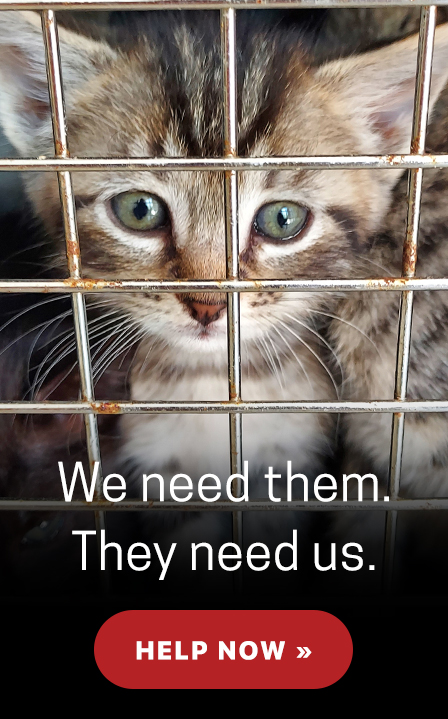Every year, hundreds of thousands of companion animals are euthanized because population in the United States outpaces society’s ability to provide necessary care and shelter. Dog and cat overpopulation, in particular, is a complex social issue and animal welfare problem with many contributing factors. To address this pressing issue, American Humane is a proponent of a multifaceted management strategy that must include three main principles: education, research and public policy.
Education
• American Humane supports public education campaigns that help pet owners be more responsible and knowledgeable about companion animal management. Education should include tenets of responsible pet ownership, including appropriate selection, the importance of spaying and neutering, keeping pets indoors or in protected environments, preventing or solving behavioral problems and consulting with veterinarians for information on these issues.
• American Humane encourages all pet sources (e.g., shelters, animal control facilities, private individuals, breeders, etc.) to educate new owners about the importance of surgical or nonsurgical sterilization and regular veterinary care.
Research
• American Humane supports research to assess the causes of pet relinquishment. Research should include cultural and community issues, pet behavioral problems and owner-related problems such as lack of access to affordable veterinary care or pet-friendly housing. The research should also include methods to develop practical and effective intervention strategies.
• American Humane encourages research into the development and use of nonsurgical methods of sterilization.
Public Policy
American Humane supports and encourages:
• State and local governments to evaluate their needs and resources to develop appropriate and effective companion pet management programs.
• Prohibiting the sale or adoption of intact dogs and cats by humane organizations and animal control agencies.
• Dog and cat licensing, rabies vaccinations, the use of identification (collars and tags), permanent identification (tattoos and microchips) and the use of identification registries.
• Surgical and nonsurgical sterilization of privately-owned intact dogs and cats, when appropriate. Veterinarians should recommend appropriate sterilization ages for individual cats and dogs owned by clients.
American Humane does not support regulation or legislation mandating the spay/neuter of privately-owned, non-shelter dogs and cats. Although spaying and neutering helps companion animal management, mandatory approaches may contribute to pet owners avoiding licensing, rabies vaccination and veterinary care for their pets, and may have other unintended consequences.

